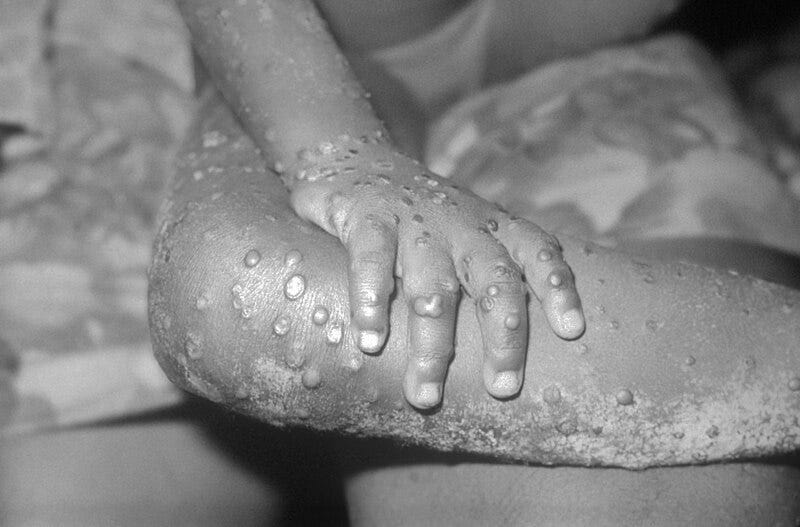Photo of the Day
Spotlight Stories
Humans' Sniffles Spell Disaster for Great Apes: Is Ecotourism to Blame?
It turns out that the common cold isn't so common after all – at least not for our closest primate relatives. While humans might suffer through a few days of sniffles and sneezes, the same viruses are wreaking havoc on chimpanzee and gorilla populations in Africa, even surpassing habitat loss and poaching as the biggest threat to their survival.
When epidemiologist Tony Goldberg found himself sweating in a protective suit, performing a necropsy on a deceased chimp named Stella in Uganda's Kibale National Park, he knew he was onto something big.
The culprit?
Human metapneumovirus (HMPV), a virus that causes mild colds in people but is a notorious killer among great apes.
The problem, dubbed "reverse zoonoses," is a tricky one for conservationists. Great ape tourism is a vital source of revenue for many African countries, helping to protect habitats and incentivize local communities to support wildlife conservation. However, close proximity to humans exposes these animals to deadly pathogens they have no immunity against.
Despite guidelines recommending tourists keep a safe distance from the apes and wear face masks, excited visitors often break the rules, putting the animals at risk.
But even ape populations that never see a tour group are still falling ill. It turns out that asymptomatic adults who work in the forest may be unknowingly spreading these "sniffle germs" to the apes.
The solution? Programs teaching handwashing and hygiene are already underway, but enforcing existing biosecurity rules and offering paid sick days to guides could also help reduce transmission.
While we can't eradicate common cold viruses entirely, behavioural changes in humans can go a long way in protecting our primate pals. As one conservationist notes, "Behavioural change takes time, but if you're committed, it eventually happens. So we need to start now."
Ethiopian Airlines Soars High Despite Boeing's Delivery Delays
Ethiopian Airlines, Africa's biggest airline, is flying high with a 30% surge in passengers this year. CEO Mesfin Tasew Bekele credits new routes and the post-pandemic travel boom for the impressive growth.
But it's not all smooth sailing for the airline.
Boeing's delivery delays and engine shortages due to supply chain hiccups have left Ethiopian with a smaller fleet than ideal.
Despite the challenges, Ethiopian remains confident in Boeing's ability to fix the issues.
The airline has grand plans to double its fleet and route network by 2035, aiming for a 400% increase in revenue and 440% more passengers.
In the meantime, Ethiopian is launching new destinations like London Gatwick, Madrid, and Bangui, while also investing heavily in its cargo business. The $55 million e-commerce shipments handling facility in Addis Ababa is a testament to the growing demand for online shopping in Africa.
Congo Battles New, Sneakier Monkeypox Strain
Congo is grappling with its biggest mpox outbreak yet, with cases and deaths nearly tripling compared to last year.
But that's not the only thing causing concern:
Scientists have discovered a new form of the disease in a mining town that might be more easily spread among people.
The new strain, detected in patients hospitalized in Kamituga between October and January, is believed to be the result of continued transmission among humans, rather than contact with wild animals thought to be the natural carriers of mpox.
What's more, this new version presents with milder lesions, often on the genitals, making it harder to diagnose than previous outbreaks where lesions were typically found on the chest, hands, and feet. On the bright side, the new strain seems to have a lower death rate.
The World Health Organization has taken notice, warning that the mutated mpox might require a new testing strategy to accurately detect the changes.
Congo has declared the outbreak a health emergency, and it's clear that fighting this evolving disease will require some creative thinking and adaptability from healthcare professionals.
Food for Thought
“The death of an elderly man is like a burning library."
— Ivorian Proverb








I appreciate, @Baobob, how you always conclude a sad story with a positive call to action: the creativity needed for healthcare workers to be able to tackle this. I never leave your publication sad or beaten down. Humans CAN do hard things!! We just need the reminding. Again, your publication is like none out there I've seen--on @Substack or in the real world, and I appreciate your stories and your particular way of presenting them so much!